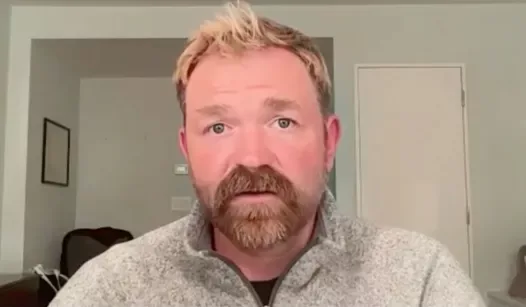In recent political discourse, phrases that capture the essence of a moment often become rallying cries for different factions. One such phrase that has emerged is “I am not a secret Nazi,” a statement that echoes the sentiments of the past while addressing contemporary concerns. This phrase can be likened to the earlier political slogan “I am not a witch,” which became prominent during the 2010 midterm elections. Both phrases serve to defend against accusations and to assert one’s stance in a polarized political landscape.
The rise of the phrase “I am not a secret Nazi” reflects the heightened sensitivity to extremism in politics today. As discussions around nationalism, racism, and authoritarianism dominate the narrative, individuals and political figures alike find themselves needing to clarify their positions against the backdrop of a society increasingly wary of extremist ideologies. This phrase has become a defensive mechanism for those who feel unjustly accused of harboring extremist views simply for expressing conservative opinions or for their association with certain political groups.
Progressives, in particular, have been vocal in their condemnation of any form of extremism. However, the challenge lies in distinguishing between legitimate political discourse and the unfounded labeling of individuals as extremists. The phrase “I am not a secret Nazi” encapsulates this struggle, as it raises questions about the boundaries of political expression and the implications of labeling individuals without substantial evidence.
The use of such phrases also highlights the broader cultural divide that exists in the United States today. On one side, progressives advocate for social justice, equity, and inclusivity, while on the other, conservatives often emphasize individual liberties, free speech, and traditional values. This divide has been exacerbated by the rise of social media, where sound bites and sensational headlines can quickly shape public perception and fuel outrage.
As political polarization deepens, the need for nuanced discussions becomes more critical. The phrase “I am not a secret Nazi” serves as a reminder that accusations can have far-reaching consequences, often leading to a chilling effect on political dialogue. Individuals may hesitate to express their views for fear of being labeled as extremists, which stifles healthy debate and undermines the democratic process.
Moreover, the phrase also invites a deeper examination of the terms we use in political discourse. What does it mean to be labeled a “Nazi” in today’s context? The term carries a heavy historical weight, invoking images of genocide, oppression, and totalitarianism. As such, it should not be used lightly or as a catch-all for those who hold differing opinions. The challenge for progressives is to engage in conversations that allow for a diversity of thought while remaining vigilant against genuine threats of extremism.
In the current political climate, it is essential for all sides to recognize the importance of constructive dialogue. While it is easy to resort to labeling and name-calling, true progress comes from understanding and addressing the underlying issues that fuel division. The phrase “I am not a secret Nazi” should serve as a call to action for progressives to engage with their opponents in good faith, seeking common ground rather than deepening the divide.
Ultimately, the emergence of phrases like “I am not a secret Nazi” reflects the complexities of contemporary politics. As individuals navigate their beliefs and the societal pressures surrounding them, it is crucial to foster an environment where open dialogue can flourish. By moving beyond labels and accusations, we can work towards a more inclusive political discourse that honors the principles of democracy and respects the diversity of opinions that exist within our society.
In conclusion, as we reflect on the implications of the phrase “I am not a secret Nazi,” it becomes clear that it is more than just a defensive statement; it is a reflection of the current state of political discourse in the United States. The challenge for progressives—and indeed for all political actors—is to ensure that our conversations remain rooted in respect, understanding, and a commitment to upholding democratic values. By doing so, we can hope to bridge the divides that threaten to fracture our society and create a political landscape that is more inclusive and representative of all voices.
